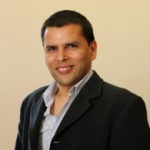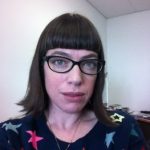About Tracer
Tourism Tracer deploys a range of flexible approaches, including tracking apps, customised hardware, survey design, recruitment ‘knowhow’, visualisation tools and specialised analysis, to gain a rich understanding of visitor travel, decision-making and preferences through the combination of locational and survey data. Unprecedented insights are collected into where visitors go, how they move around, and what influences their decisions. For the first time, we are tracking how actual travel patterns differ according to age, home country, length of stay, reason for travel and so on. We can see detailed information on how long someone stands at a lookout, walks through a national park or browses an art gallery.
Impact
There is significant value and impact to be had for government, industry and community as a result of Tourism Tracer’s unique approach. The collected data provides the tourism industry, regional tourism authorities and different levels of government with new intelligence to:
- improve marketing and infrastructure investment decisions
- identify emerging market trends
- inform strategies designed to increase the duration (and spending during) visits
- improve the visitor experience to Tasmania by allowing the provision of more timely and relevant tourist information and
- assess the visitor use and safety provision of key touring routes
Tourism Tracer is helping to establish the University of Tasmania as a global leader in technology-based tourism research with team members contributing multiple articles to leading academic journals and giving presentations at academic and industry conferences. In 2018, Tourism Tracer was invited to be a partner of the United Nation’s World Tourism Organization’s Sustainable Tourism Network, making it the first Australian entity to be involved in this program and adding to Tasmania’s growing reputation as a tourism research hotspot.
Development
Tourism Tracer began life in early 2016 as the ‘Sensing Tourist Travel in Tasmania’ project funded under the Sense-T initiative, a partnership between the University of Tasmania, CSIRO and the Tasmanian Government, and also supported by the Australian Government. The team successfully tracked 472 tourists’ complete trips through Tasmania. This is the largest successful research project of its kind in the world – spatially, numerically and temporally. This success was recognised with a Merit Award at both the state and national iAwards in the Public Sector and Government category.
The second phase of development was funded by the University of Tasmania, the Tasmanian Department of State Growth, the Tourism Industry Council of Tasmanian and the Federal Group. The team continued to further refine its approaches, developing an app which could be downloaded from the Google and App Stores and launching an online Dashboard which allows data to be visualised and explored in a user-friendly and highly accessible format. 1,000 tourists were successfully tracked while visiting Tasmania in this iteration of the project. 2017 was also the year which saw Tourism Tracer go global, with a tracking project commissioned by Tourism Skäne in Sweden to track visitor usage of the Sydostleden cycling network and a pilot project undertaken on the Japanese island of Hokkaido.
“This research is the largest study of its type ever to be conducted, both in terms of the length of time we are tracking tourists and also in terms of our study’s focus on an entire island… We can determine who goes to specific regions, how long they stop and what infrastructure they are using.” Dr Anne Hardy, Project Lead.
Commercialisation
In 2018 the University of Tasmania issued its first commercial licence for the Tourism Tracer technology to Tourism Research Technology, a spin-off company of Hobart-based ICT company Ionata Digital, in order to develop scalable commercial solutions in a cost efficient and nimble manner.
Recent Media Coverage and open source articles
- Eccleston, RG and Hardy, A and Tinch, DR, Case study: Tasmania driving innovation in the visitor economy, Improving service sector productivity: the economic imperative, CEDA, CEDA (ed), Australia, pp. 112-116.
- ABC News, Tourist-tracking project delivers powerful insights into Tasmania’s strengths and weaknesses, 13 May 2016
- University of Tasmania News, New app to help tourists share their journeys around Tasmania, 15 December 2017
The Team

Dr Anne Hardy
Senior Lecturer, Tasmanian School of Business and Economics and Director of TRENd

Prof. Richard Eccleston
Director of the Institute for the Study of Social Change

Dr Jagannath Aryal
Senior Lecturer, School of Land and Food

Dr Tommy Wong
Lecturer, Tasmanian School of Business and Economics

Dr Kate Booth
Lecturer, School of Land and Food

Dr Dugald Tinch
Lecturer, Tasmanian School of Business and Economics


